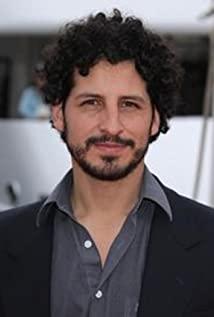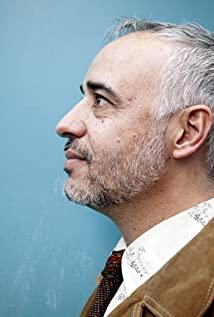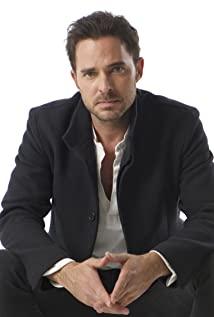After reading it three times, I decided to try to write a long review. For the third time, the subtitles are basically ignored, and the original words of the protagonist are used as a listening experience in Spanish.
First answer a few seemingly innocuous questions in the comment area:
1. Is Miguel bisexual?
From a gay point of view, Miguel is very gay in the movie (although my gaydar told me that the actor is too straight). In the whole film, Mico's happy time is almost only with Tiago and his interaction with his son Miguelito. There's an intentional sex scene with Mariela in the back which I find very reluctant, because it's evident from his unhappiness with Isaura (Mrs. Trinidad's daughter): Isaura tries to hook up with Miguel but he gets dumped (don't tell me Is it because he is loyal to his wife, isn't the male lead enough scum). In addition, when Santiago talked to Mariela at the market, he said that he would come to this fishing village every summer since he was a child, and had known Miguel for a long time. But in the end, the childhood sweetheart (?) lover married an out-of-town girl whom they had known for a while, which made people feel that the decision was made due to social and religious pressure.
2. Was Santiago Accidental Drowning or Suicide?
suicide? Why commit suicide? Let's review the last conversation between Santiago and Miguel before his death: (Miguel was very unhappy that Santiago gave him a camera, because he told his wife that he was going out to work. Let Santiago never talk to her wife to send things, and can only be an underground lover.) S: Then I'd better go. M: Don't be like that Santiago. What about your paintings? S: Are you a fool? You think I'm here because of those paintings? I stay here because of you, how can I tell you that you are satisfied, I stay here because of you. M: I have a wife and an upcoming child. Besides, I'm not that kind of person. S: Yes, you are a man, a big man (the word Macho should mean a straight man). M: Then what happened. S: Then what am I? I don't know how you see yourself, but take a good look at how you looked when we XXOO. M: I fuck you! S: Go to hell, NMSL! (then parted) Some say Santiago jumped into the sea in a fit of rage. Then why did I still leave such affectionate words on the camera and postcards on the beach (to my fisherman), it's not like doing something on impulse at all.
Well I admit that I rewatched this film a lot at first because I liked Santiago's face, but somehow I don't feel that way when I just look at the other pictures of actor Manolo Cardona (as Santiago). It was only later that I found out that I was really infatuated with the character of Santiago, who is the character with his own aura in the whole film. Be brave and be yourself in this old-fashioned fishing village, be generous (give Miguel a camera, and even give his wife something), and be generous (Héctor, the brother of the deceased in the movie, doesn't like him, and tries his best to be kind to him, to the child who throws eggs also said thank you), the fisherman who has been guarding him even after his death. Santiago's schadenfreude look is just too cute when Miguel goes to him angrily about being "comed out" over a few paintings. Later, when I saw Santiago's paintings of his fisherman, I could hold an exhibition, which made me even more fascinated by this artist.
I think the dialogue between the two of them is classic, except for the last fight before Santiago in the title, and the fight between the two when Miguel was "coming out": M: Santiago! I know you are here! S: Yo, I thought you'd never talk to my gay guy again. M: Go to hell, I told you never to draw me! S: (The bitch here is really cheap haha) I drew it for myself, not for others. M: Now the whole village thinks I'm gay! S: Of course you're not gay anymore, do you know why? Because to be gay you have to have a seed, you bastard. You're just a closet coward who thinks real men have wives and kids! M: I fuck you! (throws down and fights) S: There are a thousand ways to be a real man, and you don't belong to any of them. Do you think you are a man too? Fuck (finally subdues Miguel) Who are you trying to deceive? You are just afraid to admit that you love me. M: I can't love you, Tiago...it's not right... S: Who said that, who said that... (hug)
And Santiago's tolerance and understanding of Miguel in the last dialogue is really touching: I just ask you one last thing: don't call me again, don't look for me again, promise me that I can finally rest in peace.
And Miguel was finally able to endure the separation of his wife and the strange eyes of the whole village, and help Santiago realize his last wish: to be buried in this sea. Santiago also left a final affectionate kiss with Miguel after the body embraced the ocean again. From then on, his soul returned to the sea, and he was able to guard his lover, his fisherman all day long.
1000 readers have 1000 Hamlet in their hearts. From the perspective of a gay man myself, the male protagonist Miguel is a selfish but kind and cowardly ordinary person. The only bright spot may be to help Santiago realize his wish. The heroine Mariela is even more dazzling than Miguel. After her husband has done such a thing, she can still trust him and forgive him. She is a great mother and a great wife. And Santiago is really a perfect lover who hardly exists in reality: a rich kid abandons everything to look at a poor fisherman (although he is a childhood sweetheart), endures strange eyes from the village, and still loves to the point of madness (from So many paintings to see). Even the soul revolves around Miguel obsessively. In the end, although it was a tragedy, thanks to the director, he was finally able to realize his wish and stay by the fisherman's side forever.
Maybe this film can't become a classic that everyone likes, but if it can touch the softest part of your heart, then this film will be a success for you.
If one day I really meet your Santiago, and he loves you like crazy, don't let him wait, don't let him go.
View more about Undertow reviews










